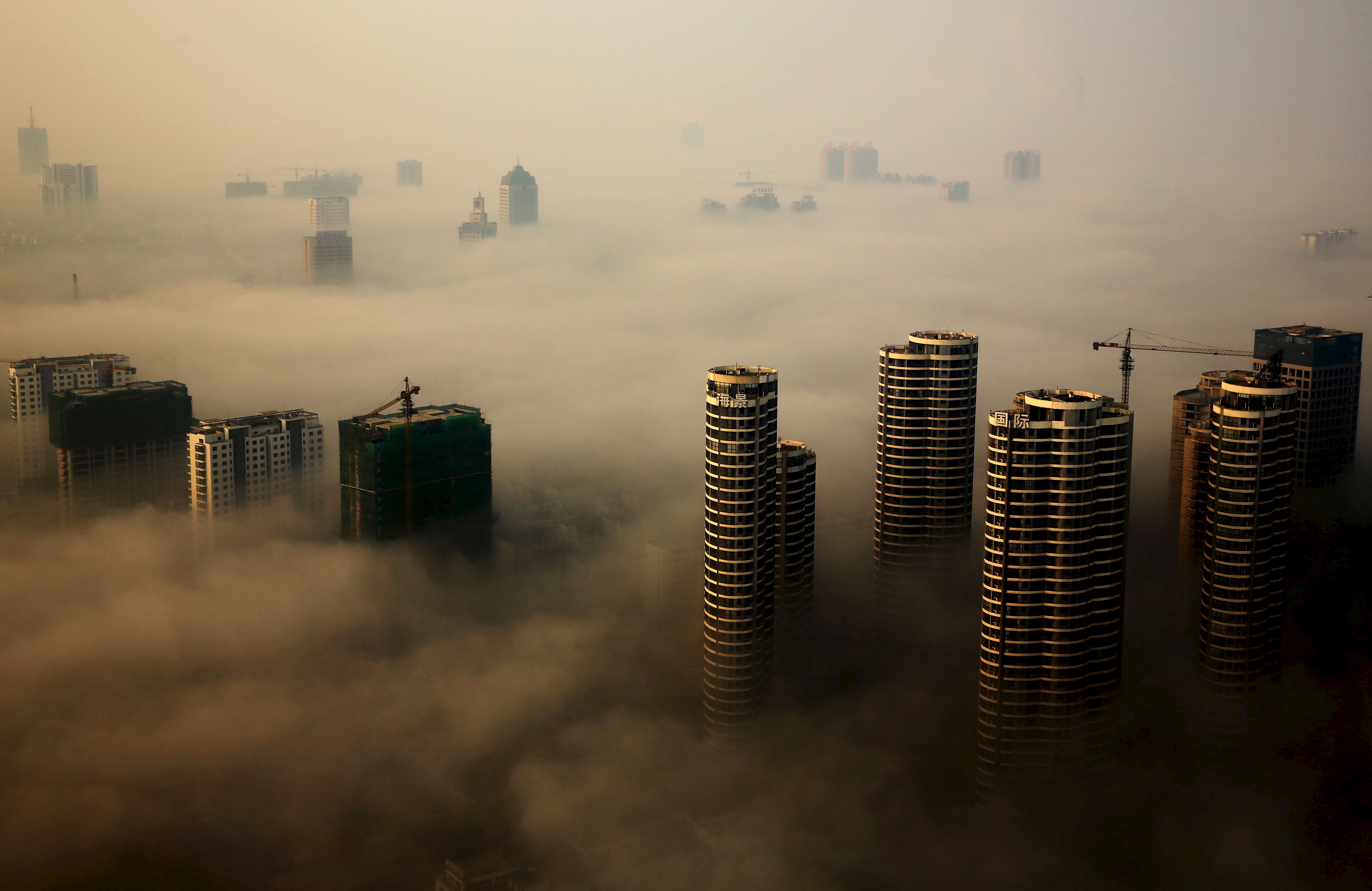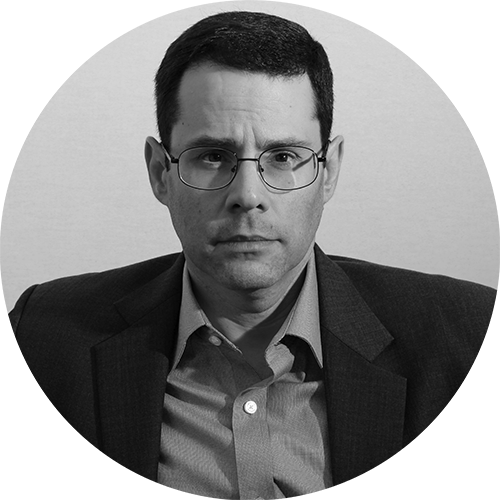The filth they breathe in China
How China's poisonous air and water is literally killing millions of Chinese people


Winter has returned to northern China. And so has the country's trademark, deadly smog.
The central government recently declared its first-ever national red alert for air quality, with pollution levels hovering over 12 times the level recommended by the World Health Organization. Indeed, China's unprecedented growth has come at a horrific social cost that is just beginning to get serious attention. The political leadership of China, like Japan and South Korea before it, put economic growth far above environmental protection or health concerns, and the country now faces a catastrophically polluted countryside. Nearly all aspects of China's environment are affected, and the true economic and health effects are only now becoming apparent.
Pollution in China is at an unsustainable level. The cost in lives and the cost of cleaning up China's ruined rivers, lakes, skies, and soil are staggering. Just as significant will be the economic cost of changing the way business is done in China to prevent further environmental destruction.
The Week
Escape your echo chamber. Get the facts behind the news, plus analysis from multiple perspectives.

Sign up for The Week's Free Newsletters
From our morning news briefing to a weekly Good News Newsletter, get the best of The Week delivered directly to your inbox.
From our morning news briefing to a weekly Good News Newsletter, get the best of The Week delivered directly to your inbox.
The lack of industrial regulation, the burning of dirty coal, and the rapid growth in private ownership of cars have combined to create one of the world's worst air pollution problems. On one of my first trips to Beijing, as our plane touched down in the early afternoon, the sky looked as though it was dusk, a phenomenon universally noted by visitors. The rarity of sunny and blue sky is avidly remarked on by everyone from shopkeepers to government officials — the latter, of course, off the record.
By some estimates, only 1 percent of China's urban dwellers breathe safe air. During the winter of 2012–13, levels of the most dangerous type of particulate matter in Beijing's air were over 20 times the amount recommended by the World Health Organization. Midday in Beijing looked like late evening, and residents were urged to stay inside.
The massive scale of China's air pollution problem was dramatically exposed when Beijing was cleared of over one million automobiles for nearly a month before the start of the 2008 Olympic Games, creating a stretch of clear weather not seen in over a decade. In October 2013, the city of Harbin in northeastern China, home to 11 million people, was essentially shut down for over a day because of smog that measured 50 times worse than the daily limit set by the World Health Organization.
China's dark skies impose staggering demographic costs. As early as the 1990s, respiratory disease was identified as one of the country's leading causes of death. Chinese environmental activists claim that in some of the most polluted cities, such as Guangzhou, residents' lungs turn black by the time they are in their forties. A 2007 World Bank study claimed that outdoor air pollution causes up to 400,000 premature deaths each year, and polluted air inside homes and factories causes another 300,000. A more recent study put the total number of deaths caused by air pollution at 1.2 million annually. A 2013 study estimated that people in northern China have a nearly six-year drop in life expectancy due to pollution.
A free daily email with the biggest news stories of the day – and the best features from TheWeek.com
Nor do China's citizens find much help in the ground. The water may be even worse than the air. Most of the country's water sources, from lakes to rivers, streams, and catch basins, are hazardous to human health. Industrial runoff, poor sewage treatment, and lack of adequate waste disposal locations, particularly throughout China's interior, have poisoned the country's water sources. Environmental groups such as Greenpeace accuse industrial concerns of dumping poisonous chemicals and other waste into rivers and lakes in and near cities. In March 2013, over 3,000 dead pigs floated down a major river through Shanghai, leading to widespread fears of waterborne contamination from the carcasses. Some rivers are so polluted that the fish in them have died, yet local populations still use them for washing clothes. The World Bank concluded in 2007 that 60,000 deaths occur each year from diarrhea, cancer, and other diseases caused by waterborne pollution.
One nonprofit environmental group claimed in a 2011 study that 39 percent of China's seven main river basins were too polluted for general use, including 14 percent that were unfit even for industrial use. In 26 key lakes and reservoirs, only 42 percent of the total water was deemed fit for swimming and fishing, while 8 percent was unfit even for industrial use. The World Bank estimates that the groundwater in half of China's cities is dangerously polluted. That means that at least half of China's population lacks access to safe drinking water. In all, a quarter of China's water sources are too polluted for human use. The problem is growing despite government attempts to improve water quality. All this pollution is taking an enormous toll on China's citizens and its economy. The World Bank estimated that the health effects of pollution cost China's economy upward of $100 billion per year, or 3 percent of GDP.
Overall, as millions of Chinese continue to move to the cities, air quality worsens and local sanitation systems get overwhelmed, while back in the hinterlands, factories go on destroying lakes and rivers. Modernization clearly does not mean wealth for everyone in China, nor, despite the trappings of middle-income lifestyles, does it necessarily mean a healthier standard of living.
This article was excerpted from Michael Auslin's new book The End of the Asian Century: War, Stagnation, and the Risks to the World’s Most Dynamic Region.
Michael Auslin is the author of The End of the Asian Century: War, Stagnation, and the Risks to the World's Most Dynamic Region, which will be published in January.
-
 Syria’s Kurds: abandoned by their US ally
Syria’s Kurds: abandoned by their US allyTalking Point Ahmed al-Sharaa’s lightning offensive against Syrian Kurdistan belies his promise to respect the country’s ethnic minorities
-
 The ‘mad king’: has Trump finally lost it?
The ‘mad king’: has Trump finally lost it?Talking Point Rambling speeches, wind turbine obsession, and an ‘unhinged’ letter to Norway’s prime minister have caused concern whether the rest of his term is ‘sustainable’
-
 5 highly hypocritical cartoons about the Second Amendment
5 highly hypocritical cartoons about the Second AmendmentCartoons Artists take on Kyle Rittenhouse, the blame game, and more
-
 Israel retrieves final hostage’s body from Gaza
Israel retrieves final hostage’s body from GazaSpeed Read The 24-year-old police officer was killed during the initial Hamas attack
-
 China’s Xi targets top general in growing purge
China’s Xi targets top general in growing purgeSpeed Read Zhang Youxia is being investigated over ‘grave violations’ of the law
-
 Panama and Canada are negotiating over a crucial copper mine
Panama and Canada are negotiating over a crucial copper mineIn the Spotlight Panama is set to make a final decision on the mine this summer
-
 Why Greenland’s natural resources are nearly impossible to mine
Why Greenland’s natural resources are nearly impossible to mineThe Explainer The country’s natural landscape makes the task extremely difficult
-
 Iran cuts internet as protests escalate
Iran cuts internet as protests escalateSpeed Reada Government buildings across the country have been set on fire
-
 US nabs ‘shadow’ tanker claimed by Russia
US nabs ‘shadow’ tanker claimed by RussiaSpeed Read The ship was one of two vessels seized by the US military
-
 How Bulgaria’s government fell amid mass protests
How Bulgaria’s government fell amid mass protestsThe Explainer The country’s prime minister resigned as part of the fallout
-
 Femicide: Italy’s newest crime
Femicide: Italy’s newest crimeThe Explainer Landmark law to criminalise murder of a woman as an ‘act of hatred’ or ‘subjugation’ but critics say Italy is still deeply patriarchal
